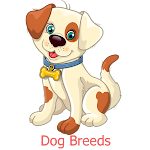 |
| Weight Reduction in the Obese Pet |
Obesity is a common problem in pets, just as it is in humans. It can lead to a variety of health issues, including diabetes, arthritis, and heart disease. Helping your pet achieve a healthy weight is important for their overall well-being. In this article, we will discuss the best methods for weight reduction in obese pets.
Identifying Obesity
The first step in helping your pet lose weight is to identify whether they are actually obese. This can be done by consulting with a veterinarian, who can assess your pet's body condition score and determine if they are overweight. Signs of obesity in pets may include difficulty breathing, lethargy, and an inability to feel their ribs.
YOU MAY LIKE Dog Weight-Loss:
How to Help a Dog Lose WeightDog Weight Loss Program
Creating a Weight Reduction Plan for Dogs
Best Dog Weight Loss Program
How to Put Your Dog on a Diet
Weight-Loss Camp For Dogs
OVERWEIGHT AND DOG WEIGHT LOSS PLAN
How to Help Your Dog Lose Weight
Dog Weight-Loss
7 Foolproof Tips to Help Your Dog Lose Weight This Year
Weight Reduction in the Obese Pet
Dietary Changes
One of the key aspects of weight reduction in obese pets is making changes to their diet. This can include switching to a low-calorie pet food, reducing portion sizes, and limiting treats. It's important to consult with a veterinarian before making any drastic dietary changes to ensure that your pet is still receiving the necessary nutrients.
Increased Exercise
Increasing your pet's exercise is another important factor in weight reduction. This can involve taking them for regular walks, engaging in interactive play, and providing them with toys that encourage physical activity. Gradually increasing their exercise level is important to prevent injury or strain.
Monitoring Progress
It's important to regularly monitor your pet's progress when it comes to weight reduction. This can be done through regular weigh-ins at the veterinarian's office and by keeping track of their body condition score. It may also be helpful to keep a journal of their food intake and exercise routine to identify any patterns or areas for improvement.
Conclusion
Helping your pet achieve a healthy weight is important for their overall well-being. By making dietary changes, increasing exercise, and monitoring progress, you can help your pet lose weight and reduce their risk of health issues associated with obesity.
FAQs
How can I tell if my pet is obese?
You can tell if your pet is obese by consulting with a veterinarian, who can assess your pet's body condition score and determine if they are overweight.
What dietary changes should I make to help my pet lose weight?
You can make dietary changes to help your pet lose weight by switching to a low-calorie pet food, reducing portion sizes, and limiting treats. It's important to consult with a veterinarian before making any drastic dietary changes to ensure that your pet is still receiving the necessary nutrients.
How can I increase my pet's exercise level?
You can increase your pet's exercise level by taking them for regular walks, engaging in interactive play, and providing them with toys that encourage physical activity. Gradually increasing their exercise level is important to prevent injury or strain.
How often should I monitor my pet's progress?
You should monitor your pet's progress regularly through regular weigh-ins at the veterinarian's office and by keeping track of their body condition score. It may also be helpful to keep a journal of their food intake and exercise routine to identify any patterns or areas for improvement.
YOU MAY LIKE:
The 10 Most Energetic Dog BreedsThe 10 Most Low-Maintenance Dog Breeds
The 10 Most Loyal Dog Breeds
The 10 Most Unique Dog Breeds
The 10 Most Obedient Dog Breeds
The 10 Most Elegant Dog Breeds
The 10 Most Energetic Dog Breeds
The 10 Most Active Dog Breeds


